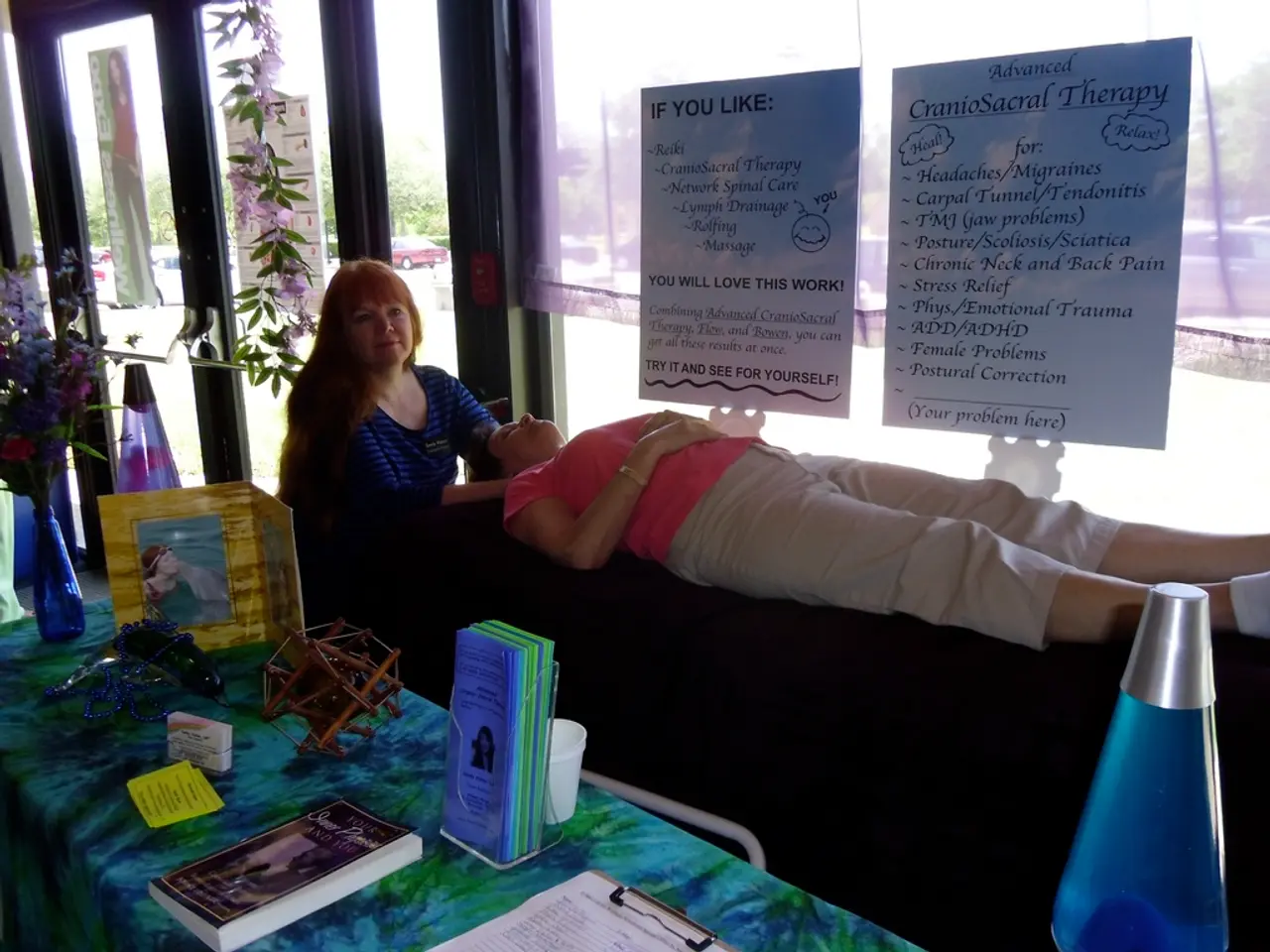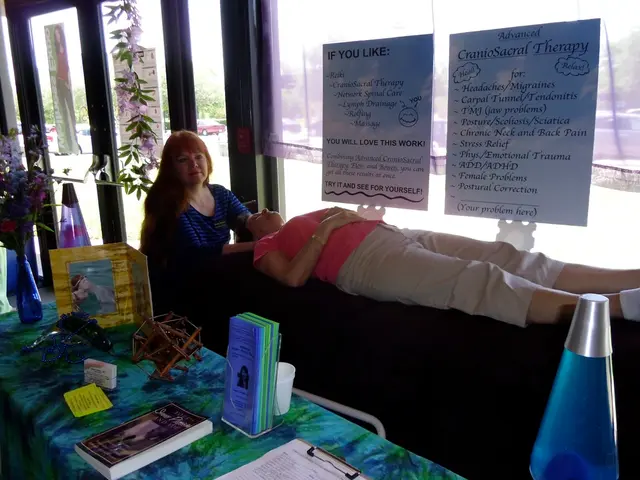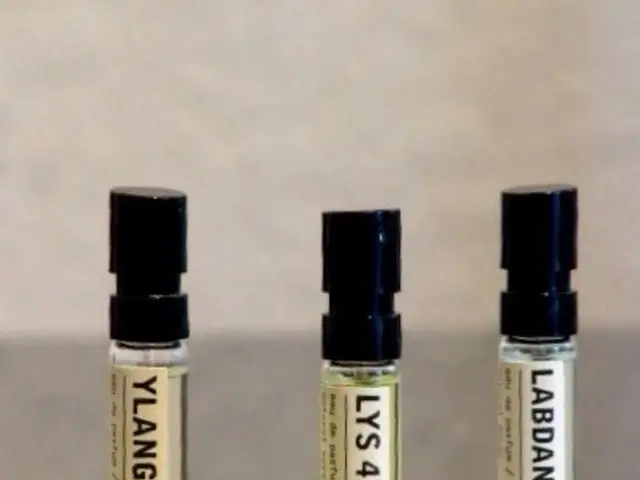Onset and characteristic signs of menopause's arrival
As women approach midlife, they may experience the onset of menopause, a natural stage marked by the cessation of menstrual periods. This transition, which usually begins between the ages of 40 and 58 years (with an average age of 51 in the United States), can bring about a variety of physical and emotional changes.
Menopause is often characterised by symptoms such as hot flashes, night sweats, vaginal dryness, and reduced sex drive. Sleep problems, stemming from anxiety, night sweats, or an increased need to urinate, are also common. In some cases, menopause may start earlier, occurring before the age of 40 in around 1 in 1000 females, a condition known as early menopause.
For those experiencing these symptoms, relief and support are available. Common treatments for managing menopause symptoms include both hormonal and non-hormonal options, alongside supportive therapies and lifestyle changes tailored to individual needs.
Hormone Replacement Therapy (HRT), or Menopause Hormone Therapy (MHT), is the most common and effective treatment, especially for severe symptoms such as hot flashes, mood changes, and vaginal dryness. Delivered via pills, patches, gels, creams, or rings, HRT typically involves estrogen alone or combined with progesterone. Local estrogen therapy, targeting genitourinary symptoms with limited systemic effects, is also available.
Non-hormonal treatments include selective serotonin reuptake inhibitors (SSRIs) and serotonin-norepinephrine reuptake inhibitors (SNRIs), antidepressants that can reduce hot flash intensity and improve mood and sleep. Gabapentin and clonidine are used to alleviate hot flashes and improve sleep quality, while a newer medication, fezolinetant (Veozah®), a neurokinin 3 receptor antagonist, reduces vasomotor symptoms by acting on brain temperature regulation without altering hormones.
Supportive and behavioural therapies, such as Cognitive Behavioral Therapy (CBT), are effective for managing mood swings, anxiety, and sleep disturbances associated with menopause. Natural supplements, including Ayurvedic herbs like ashwagandha and shatavari, can help alleviate symptoms such as hot flashes and fatigue, although evidence varies. Peer support groups and community resources offer emotional support, reduce isolation, and provide shared coping strategies.
Lifestyle modifications involving diet, exercise, and stress management are recommended as complementary approaches. Emerging trends include personalised medicine tailoring treatment to genetics and lifestyle, digital health tools for symptom monitoring, and workplace wellness programs supporting menopausal women.
It's important to note that each person will experience menopause differently, and some may have full, active lives throughout the transition and afterward. However, symptoms may start before menstruation ends and can last for several years. Emotional changes such as depression, anxiety, and low mood are common during menopause.
Hormone therapy may increase the risk of developing certain diseases and health conditions. Therefore, it's crucial to consult a healthcare professional to discuss the benefits and risks effectively. A doctor can confirm whether the reason for menstruation ending is perimenopause or menopause by asking some questions, testing hormone levels, and performing other analyses of the blood and urine to rule out health issues.
After menopause, the risk of certain health issues appears to increase, including osteoporosis, cardiovascular disease, and breast cancer. Vaginal dryness, itching, and discomfort may start during perimenopause and continue into menopause. Mental symptoms such as anxiety, changes in mood, and reduced sex drive can also occur during menopause.
Menopause is a stage in life, not an illness, and most women experience natural menopause during midlife. However, surgery and other factors can cause menopause to start earlier. Transgender people who retain their ovaries may experience menopause when their ovaries stop producing eggs.
In conclusion, managing menopause symptoms is highly individualised, involving a combination of hormone therapy, non-hormonal medications, behavioural therapies, natural supplements, and supportive community resources, all guided by healthcare professionals to balance benefits and risks effectively. Maintaining a healthful diet and getting regular exercise can help manage symptoms and boost overall health. Tips for managing the challenges of menopause include getting regular exercise, practicing relaxation and deep breathing exercises, having a healthful diet, quitting smoking and avoiding secondhand smoke, limiting alcohol intake, seeking counseling for anxiety, mood changes, and relationship concerns, establishing good sleeping habits, doing Kegel exercises, talking to friends and family about the experience of menopause, exploring new ways of enjoying intimacy with a partner, joining a club, volunteering, or taking up a new hobby.
- Women approaching midlife can experience the onset of menopause, a natural stage marked by the cessation of menstrual periods.
- Menopause is commonly characterized by symptoms such as hot flashes, night sweats, vaginal dryness, and reduced sex drive.
- Sleep problems, stemming from anxiety, night sweats, or an increased need to urinate, are also common during menopause.
- In some cases, menopause may start earlier, occurring before the age of 40, a condition known as early menopause.
- Hormone Replacement Therapy (HRT), or Menopause Hormone Therapy (MHT), is the most common and effective treatment for severe menopause symptoms.
- Delivered via pills, patches, gels, creams, or rings, HRT typically involves estrogen alone or combined with progesterone.
- Local estrogen therapy is also available, targeting genitourinary symptoms with limited systemic effects.
- Non-hormonal treatments include antidepressants, gabapentin, clonidine, and fezolinetant (Veozah®), which help reduce hot flash intensity, improve mood and sleep, and reduce vasomotor symptoms.
- Supportive and behavioural therapies, like Cognitive Behavioral Therapy (CBT), are effective for managing mood swings, anxiety, and sleep disturbances associated with menopause.
- Natural supplements, such as Ayurvedic herbs like ashwagandha and shatavari, can help alleviate symptoms such as hot flashes and fatigue.
- Lifestyle modifications, including diet, exercise, and stress management, are recommended as complementary approaches to managing menopause symptoms.
- After menopause, the risk of certain health issues like osteoporosis, cardiovascular disease, and breast cancer appears to increase.
- Vaginal dryness, itching, and discomfort may start during perimenopause and continue into menopause.
- Maintaining a healthful diet, getting regular exercise, quitting smoking, limiting alcohol intake, seeking counseling for anxiety, mood changes, and relationship concerns, establishing good sleeping habits, doing Kegel exercises, talking to friends and family about the experience of menopause, and exploring new ways of enjoying intimacy with a partner can help manage the challenges of menopause.




